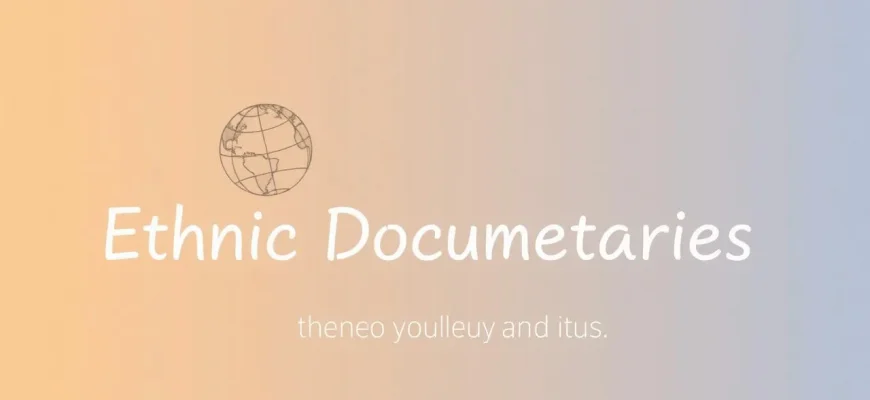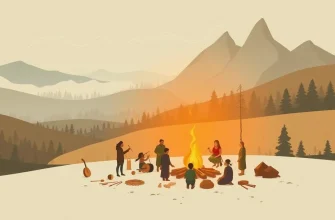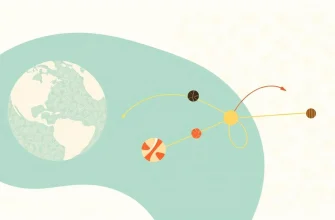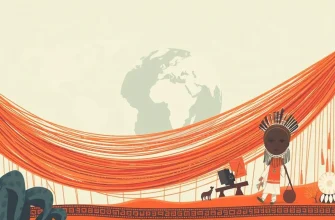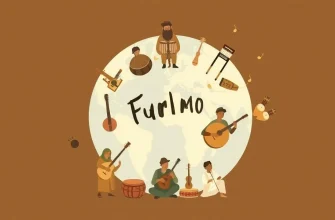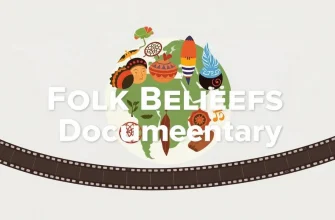- The Last Shaman (2016)
- The Linguists (2008)
- The Tribe (2014)
- The Lost World of the Kalahari (1956)
- The Inuit Way (2012)
- The Maori: A History of the Indigenous People of New Zealand (2000)
- The Nomads of Mongolia (2006)
- The Way of the Samurai (2010)
- The Maasai: People of the Cattle (2005)
- The Hmong: A People Without a Country (2008)
Embark on a cinematic journey that transcends borders and dives deep into the heart of human diversity. This curated selection of documentaries offers a window into the lives, traditions, and challenges faced by various ethnic groups across the globe. Each film not only entertains but educates, providing a profound understanding of cultural richness and the universal human experience. Whether you're a cultural enthusiast or simply curious about the world, these films will broaden your horizons and deepen your appreciation for the mosaic of humanity.

The Last Shaman (2016)
Description: Journey into the Amazon rainforest to meet the Shipibo-Conibo people and their shamanic traditions. This film explores the clash between ancient healing practices and modern medicine through the eyes of a young American seeking a cure for his depression.
Fact: The film was shot in Peru and features real-life shamanic ceremonies. It also sparked discussions on the ethics of filming indigenous rituals.
 Watch Now
Watch Now 
The Linguists (2008)
Description: Follow two linguists as they travel the world to document dying languages, showcasing the cultural significance of language preservation among various ethnic groups from Siberia to India.
Fact: The film was co-produced by the National Science Foundation and has been used in educational settings to discuss language endangerment.
 30 Days Free
30 Days Free 
The Tribe (2014)
Description: This documentary follows the lives of the Hadza, one of the last remaining hunter-gatherer tribes in Tanzania, offering a rare glimpse into their daily lives, traditions, and the impact of modernization on their culture.
Fact: The film was shot over several years to capture the seasonal changes and the tribe's interaction with the environment. It was also nominated for an Emmy Award.
 30 Days Free
30 Days Free 
The Lost World of the Kalahari (1956)
Description: This classic documentary by Laurens van der Post explores the lives of the San people, also known as Bushmen, in the Kalahari Desert, highlighting their unique way of life and the challenges they face.
Fact: The film was one of the first to bring attention to the plight of the San people, influencing conservation efforts in the region.
 30 Days Free
30 Days Free 
The Inuit Way (2012)
Description: Delve into the lives of the Inuit people of Canada, exploring their traditional practices, the impact of climate change, and their efforts to maintain their cultural identity in a rapidly changing world.
Fact: The film was made in collaboration with the Inuit community to ensure cultural accuracy and sensitivity.
 30 Days Free
30 Days Free 
The Maori: A History of the Indigenous People of New Zealand (2000)
Description: This documentary traces the history, culture, and contemporary issues of the Maori people, from their Polynesian origins to their fight for land rights and cultural preservation.
Fact: It features interviews with prominent Maori leaders and historians, providing an insider's perspective on Maori culture.
 30 Days Free
30 Days Free 
The Nomads of Mongolia (2006)
Description: Experience the vast steppes of Mongolia through the eyes of its nomadic people, exploring their lifestyle, traditions, and the challenges they face in a modernizing world.
Fact: The film was shot over several seasons to capture the full cycle of nomadic life, from winter camps to summer pastures.
 30 Days Free
30 Days Free 
The Way of the Samurai (2010)
Description: This documentary delves into the history and philosophy of the Samurai, focusing on the Ainu people of Japan, their traditions, and their struggle for recognition and rights.
Fact: It includes rare footage of Ainu ceremonies and interviews with Ainu elders.
 30 Days Free
30 Days Free 
The Maasai: People of the Cattle (2005)
Description: Explore the Maasai of East Africa, their pastoral lifestyle, the importance of cattle in their culture, and the ongoing conflicts with conservation efforts and land rights.
Fact: The film was made in collaboration with the Maasai community, ensuring an authentic portrayal of their lives.
 30 Days Free
30 Days Free 
The Hmong: A People Without a Country (2008)
Description: This documentary follows the Hmong people, originally from China, now scattered across Southeast Asia and the United States, documenting their struggle for identity and cultural preservation.
Fact: It features interviews with Hmong refugees and explores the impact of the Vietnam War on their community.
 30 Days Free
30 Days Free 
